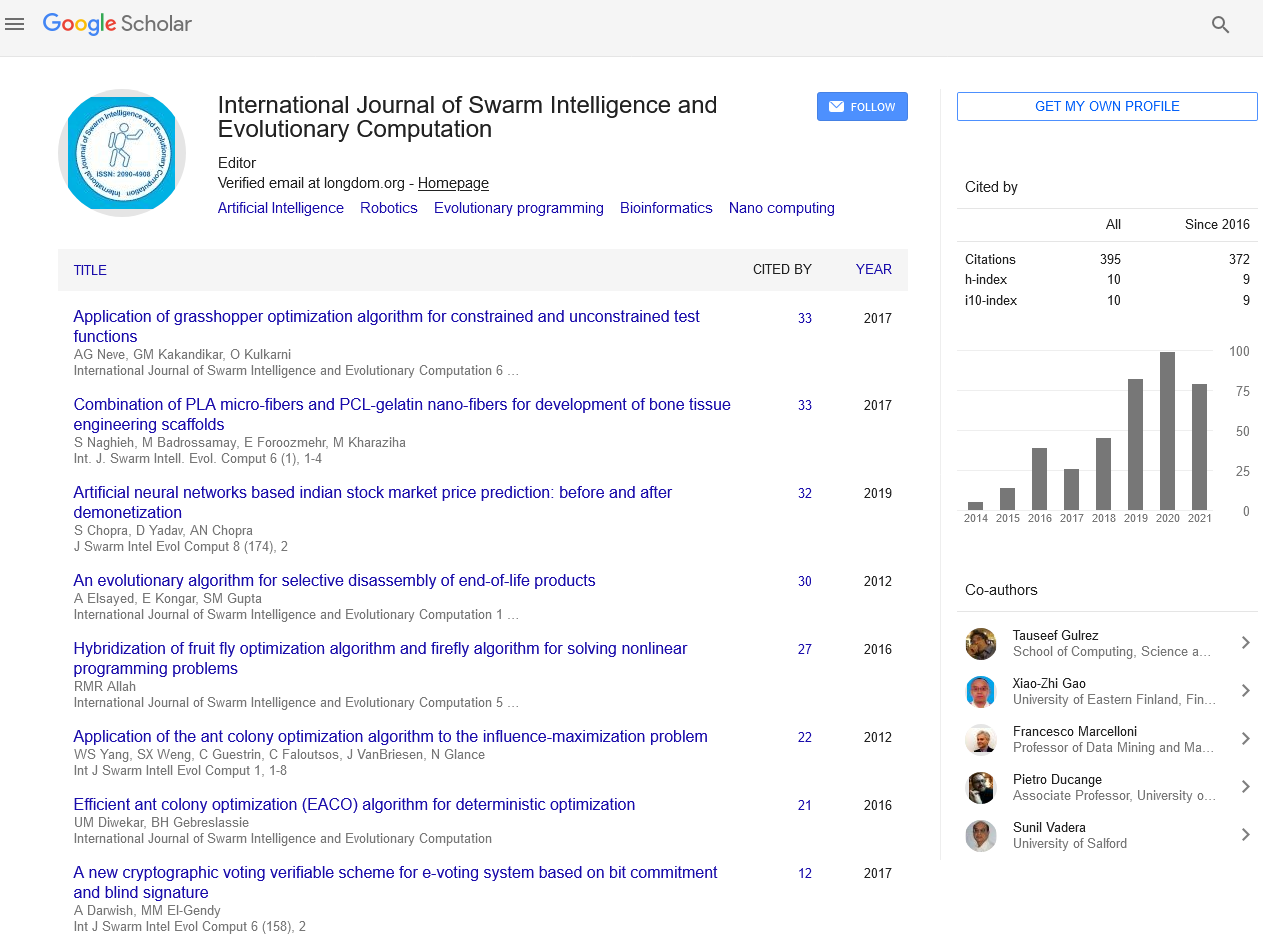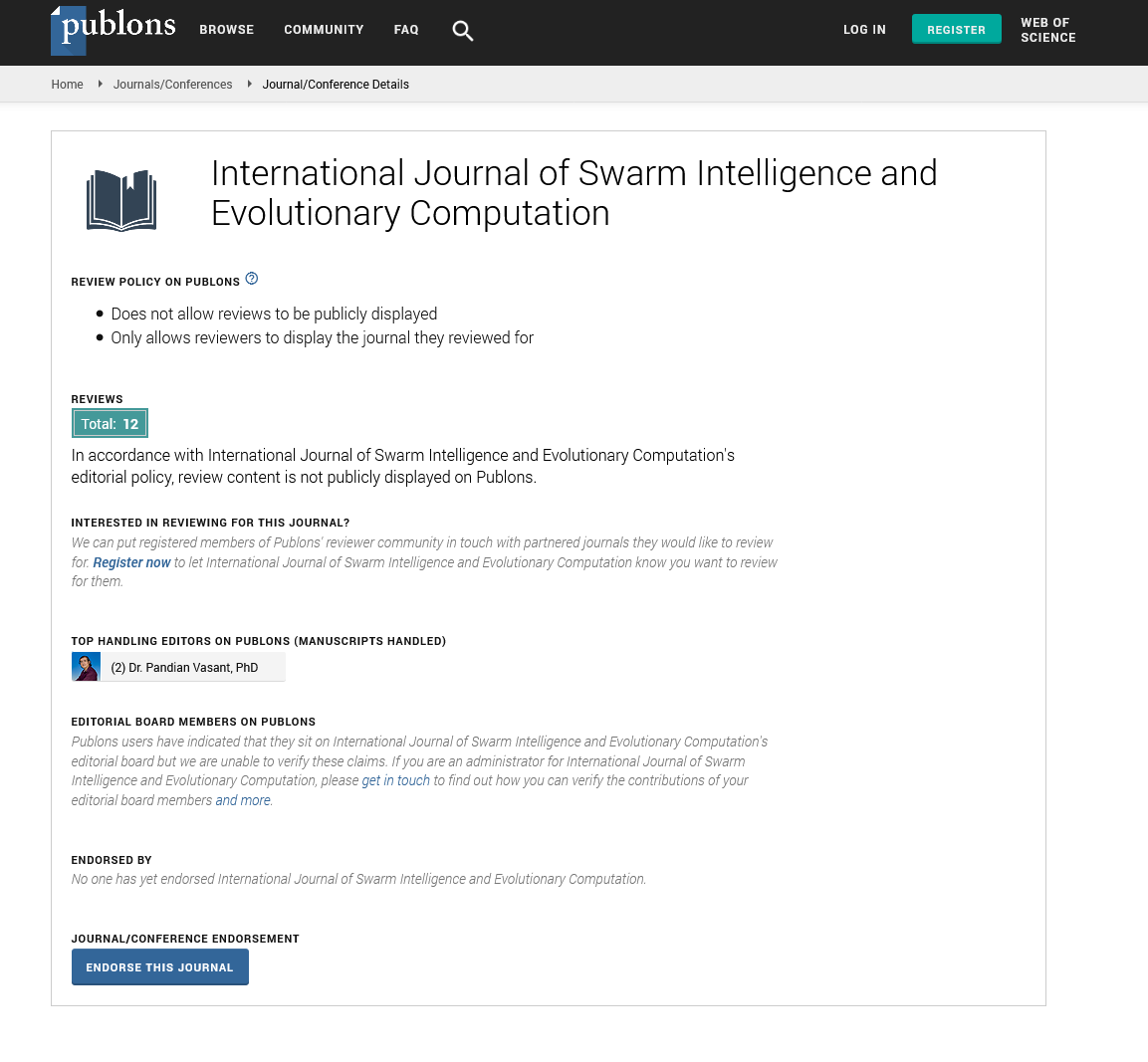Indexed In
- Genamics JournalSeek
- RefSeek
- Hamdard University
- EBSCO A-Z
- OCLC- WorldCat
- Publons
- Euro Pub
- Google Scholar
Useful Links
Share This Page
Journal Flyer

Open Access Journals
- Agri and Aquaculture
- Biochemistry
- Bioinformatics & Systems Biology
- Business & Management
- Chemistry
- Clinical Sciences
- Engineering
- Food & Nutrition
- General Science
- Genetics & Molecular Biology
- Immunology & Microbiology
- Medical Sciences
- Neuroscience & Psychology
- Nursing & Health Care
- Pharmaceutical Sciences
Opinion Article - (2022) Volume 11, Issue 11
Quantum Artificial Intelligence and its Significance
Yuyang Wang*Received: 17-Oct-2022, Manuscript No. SIEC-22-19345; Editor assigned: 19-Oct-2022, Pre QC No. SIEC-22-19345 (PQ); Reviewed: 31-Oct-2022, QC No. SIEC-22-19345; Revised: 07-Nov-2022, Manuscript No. SIEC-22-19345 (R); Published: 17-Nov-2022, DOI: 10.35248/2090-4908.22.11.285
Description
Quantum mechanics is a universal model based on principles that differ from those observed in everyday life. To process data with quantum computing, a data quantum model is required. Hybrid quantum-classical models are also required for quantum computing for error correction and proper quantum computer operation. Quantum data can be thought of as data packets contained in computerized qubits. However, because of the properties that make quantum data valuable, such as superposition and entanglement, observing and storing it is difficult. Furthermore, because quantum data is noisy, it is necessary to use machine learning in the process of correctly analyzing and interpreting this data. Only when using quantum processors to generate quantum data is it possible to obtain meaningless data in hybrid quantum-classical models. As a result, a hybrid model emerges when it is powered by fast data processing mechanisms like the CPU and GPU, which are commonly used in traditional computers. A sequence of steps that leads to the solution of a problem is referred to as an "algorithm." To carry out these steps on a device, specific instruction sets that the device is designed to support must be used. When compared to classical computing, quantum computing introduces new instruction sets that are based on a completely different concept of execution. The goal of quantum algorithms is to solve problems by utilizing quantum effects such as superposition and entanglement.
POSSIBILITIES FOR USING QUANTUM COMPUTING IN AI
Quantum learning algorithms
Quantum algorithms for generalising classical learning models are being developed. It has the potential to accelerate or improve deep learning training. Quantum computing can contribute to classical machine learning by quickly presenting the optimal solution set of artificial neural network weights. Quantum algorithms for decision-making: Classical decision problems are expressed as decision trees. Creating branches from specific points is one way to get to a set of solutions. However, the efficiency of this method decreases when each problem is too complex to solve by constantly dividing it into two. Quantum algorithms based on Hamiltonian time evolution are faster than random walks at solving problems represented by a number of decision trees.
The majority of search algorithms are designed for classical computing. In search problems, classical computing outperforms humans. Grover algorithm and claimed that quantum computers could solve this problem faster than classical computers. AI powered by quantum computing has the potential to be useful in near-term applications such as encryption.
Classical game theory
Classical game theory is a modelling process that is widely used in AI applications. This theory is extended to the quantum field by quantum game theory. It has the potential to be a promising tool for overcoming critical problems in quantum communication and quantum artificial intelligence implementation.
Significance
Machine learning models created on quantum computers are more powerful and faster than models created on traditional computers. Quantum machine learning assists in the solution of problems with complex correlations between inputs that are difficult to solve with traditional classic computers.
Even though there are obstacles to overcome before quantum machine learning can be widely adopted commercially, it will improve Artificial Intelligence (AI) and Machine Learning (ML) by leaps and bounds. As the benefits outweigh the risks, the adoption of quantum machine learning will accelerate in the near future. One of the most pressing issues with AI today is its lack of transparency and explainability, particularly when complex algorithms such as deep learning are used. If an AI system is being used for decisions that directly impact lives, such as courtroom decisions, social benefits to communities, or even deciding who gets a loan and at what rate, it is fundamentally critical that the decision can be tied to tangible facts that are non-discriminatory in practise. Understandably, quantum computing in such AI systems increases complexity, which has a negative correlation with transparency and explainability.
Citation: Wang Y (2022) Quantum Artificial Intelligence and its Significance. Int J Swarm Evol Comput. 11:285.
Copyright: © 2022 Wang Y. This is an open-access article distributed under the terms of the Creative Commons Attribution License, which permits unrestricted use, distribution, and reproduction in any medium, provided the original author and source are credited.


